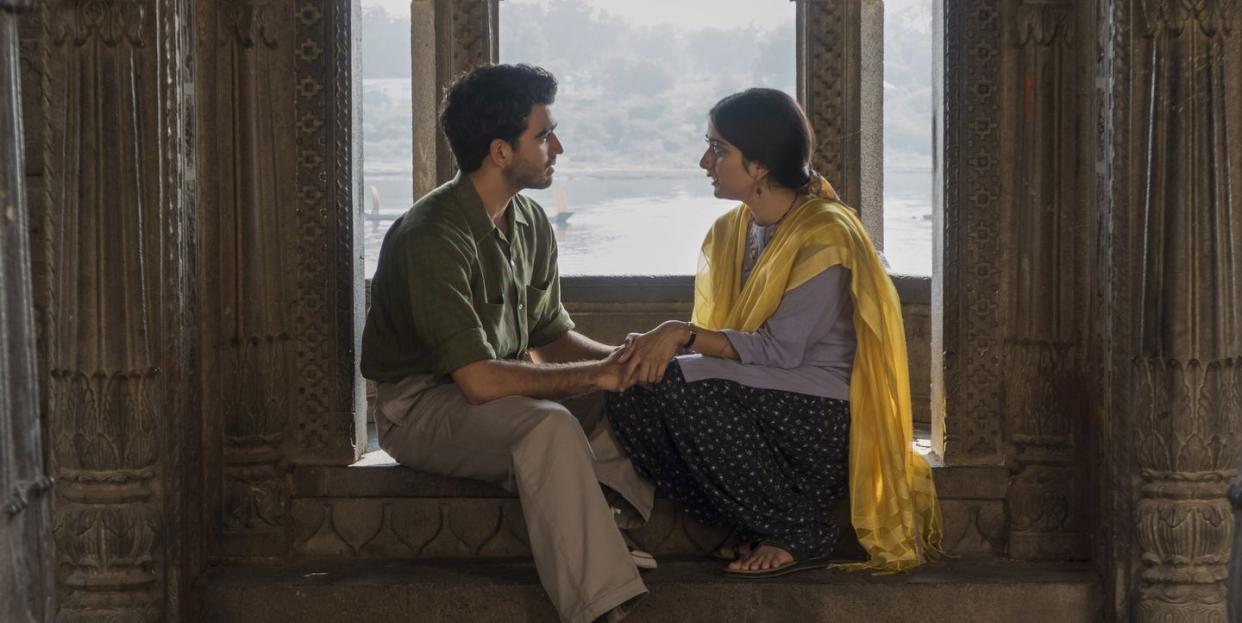Director Mira Nair on 'A Suitable Boy': "I Think It’s About Time"

A Suitable Boy is a project that’s been 27 years in the making. Mira Nair, the Oscar-nominated filmmaker who helms the series, fell in love with Vikram Seth’s novel—which follows four families in a newly independent India—when it was first released in 1993, but says now, “I didn’t do anything about it at the time in terms of making it into a film, because it was too big.”
The solution wasn’t making A Suitable Boy into a movie at all, but instead into a six-part limited series, which has been a hit around the world and premieres in the U.S. on December 7 on the streaming service Acorn TV.

Nair, whose previous projects include Monsoon Wedding, The Namesake, and Queen of Katwe, is a first-time TV director—but her material remains cinematic. A Suitable Boy is about love (requited and not), money, power, politics, religion, and family; it’s a sweeping story that’ll captivate any fan of period pieces or prestige drama—in part thanks to writing by Andrew Davies, who penned Sanditon and Les Misérables. (Her upcoming work skews similarly ambitious; Nair’s next projects include a series about the Jungle Prince of Delhi, a biopic of the painter Amrita Sher-Gil, and a Broadway-bound stage version of Monsoon Wedding.)
Here, Nair explains her approach to making television, her taste for grand drama, and her response to anyone who questions the need for a romantic, theatrical South Asian epic.
The book A Suitable Boy came out in 1993. Do you remember how it came into your life?
I was waiting for A Suitable Boy to be published. I know Vikram and used to visit him while he was writing it, which took him all of 10 years. When the book came out in 1993, I devoured it immediately and then, most unusually, read it again. I loved how he captured us as a people at a time when we were newly free and determining ourselves; 1950 was also the year my parents married, so I was born out of this wave of idealism in India. I loved this book like a best friend, I didn’t want it to finish, but I didn’t do anything about it at the time in terms of making it into a film because it was too big. In those days, TV series as we know them now were not a form that one pursued.

What changed your mind?
I ended up making a microcosmic version of a similar story in Monsoon Wedding, which was about two families instead of four. I know [A Suitable Boy] tried to become a series twice, and I was not involved with either manifestation, but when news that this one was happening came along, I was just determined to throw my sari in the ring.
You’ve made so many films but never a TV series before. Is it at all different?
I thought of this as long-form cinema. It was my first time working in television, so I don’t think in that cliffhanger fashion—but fortunately the book did, it’s full of cliffhangers. In the making of the series, I didn’t think about television, I just thought about what I do, and what I do is make cinema. This was about sweeping long shots and layered landscapes; it was not married to the close-up. The scenes are about rhythm and are equally devoted to context and character.

It’s not your first period piece, you also directed Vanity Fair in 2004. It is a genre for which you have a soft spot?
I have an affinity for them, but mostly if they’re cinematic. I thought more about Visconti’s The Leopard and epic films I love. We chose locations with fluidity to them; what is hidden and what is not is very much a part of choosing locations and looking at how people live. There are so many ways to see without being seen, and that’s beautiful to do.
It’s not every day we see a drama like this outside of England—and even more rarely in India.
I think it’s about time. They used to say in England that it’s so radical do a South Asian epic with South Asian actors—but what’s radical about that? What’s radical is that they hadn’t woken up to the extraordinary richness of the subcontinent and our history. Look at this series and its characters! They’re utterly modern characters; people are people in my view, we just haven’t seen them. It’s what I’ve done all my life, bring viewers to that place we come from, with our language, music, and culture. But human beings are human beings, and you’ll see yourself in what you’ve thought of as the other. I don’t want to be considered a novelty; I want to show you that you’re the same as we are. That common humanity is what really interests me.
You’ve got so much going on in the series—incredible sets and costumes, a brilliant cast. What are you hoping audiences most appreciate?
Because I love making ensemble pieces, I actively avoid favorites. The sum has to be even better than its parts, so I look at the holistic rather than the particular. That said, I do love certain characters. I love the sparkle of Meenakshi Mehra—she’s not amoral, but she’s got her own morals. She has an appetite for life that I enjoy, and Shahana Goswami, who plays her, is just remarkable. She’s an utterly modern girl, and that’s something I really loved. Also, the chemistry of a legendary actor like Tabu opposite a newcomer like Ishaan Khattar is such a great thing. I love to do that any time I can—an alchemy happens that’s just beautiful.
You Might Also Like
